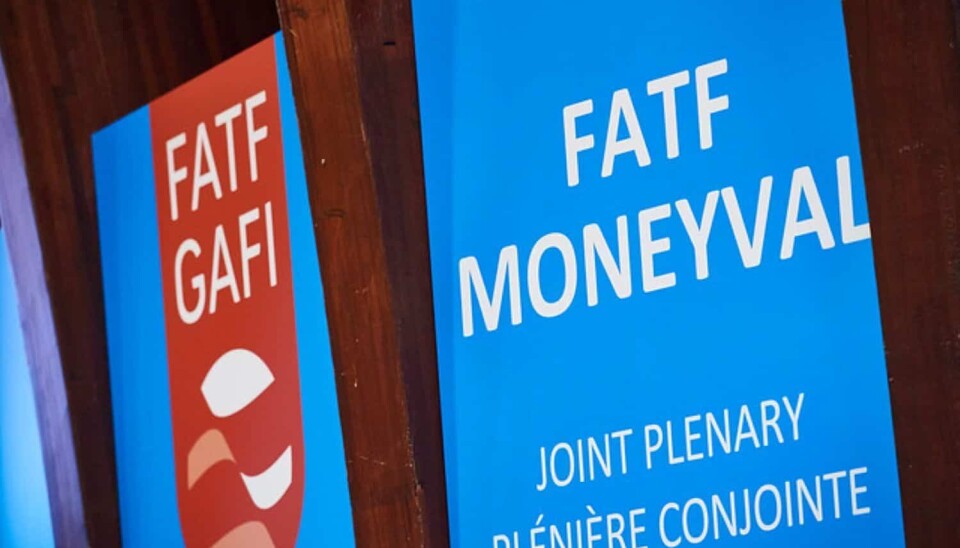Copyright : Re-publication of this article is authorised only in the following circumstances; the writer and Africa Legal are both recognised as the author and the website address www.africa-legal.com and original article link are back linked. Re-publication without both must be preauthorised by contacting editor@africa-legal.com
South Africa, Nigeria, Mozambique & Burkina Faso's removal from the FATF grey list 'a positive story’ for Africa

Following its latest plenary meeting on 22-24 October in Paris, global watchdog the Financial Action Task Force has removed four key African nations from its ‘grey list’ of countries that face increased monitoring for strategic AML/CFT deficiencies
Political leaders, government officials, and analysts have applauded Friday’s significant milestone of four African nations being removed from the Financial Action Task Force (FATF)’s list of countries subject to increased monitoring due to strategic deficiencies in addressing financial crime, aka ‘the grey list’.
During its October plenary meeting in Paris last week, the global money laundering and terrorist financing watchdog welcomed the significant progress made by sub-Saharan Africa’s two largest economies, South Africa and Nigeria, as well as resource-rich Mozambique and Burkina Faso, in improving their AML/CFT regimes.
"With each plenary we seek to make the world's defence against criminals stronger, and we have made a number of updates on our grey list," said Elisa de Anda Madrazo, president of the FATF, at a press conference on Friday, following three days of discussions to address key issues in the global fight against illicit finance. "And this plenary has been very positive, a positive story for the continent of Africa.”
This follows on from Tanzania and Mali exiting the grey list in June.
South Africa and Nigeria were added to the list of countries under special scrutiny in 2023; Mozambique and Burkina Faso were grey-listed in 2022 and 2021, respectively.
As Webber Wentzel partners Lerato Lamola and Kent Davis previously discussed with Africa Legal, since it was greylisted in 2023, South Africa has worked hard to address several legislative deficiencies, including more emphasis from regulators on how groups manage AML risk within South Africa and beyond.
The South African Revenue Service welcomed the FATF’s decision to remove South Africa from its grey list, calling it a significant moment and testament to the whole of government approach and its institutions to restore integrity of the financial system.
“We recognise that removing the designation of grey listing is not a finish line but a milestone on a long-term journey toward building a robust and resilient financial ecosystem,” said Edward Kieswetter, South African Revenue Service Commissioner. “This delisting is a vote of confidence in South Africa’s progress, but it is not an end to our vigilance. The fight against financial crime and corruption is a continuous one.”
President Bola Tinubu described Nigeria’s delisting as a major milestone on the journey towards economic reform, institutional integrity, and global credibility.
Rather than a setback, Nigeria had viewed the FATF placing it on the grey list in February 2023 as a call to action for more vigorous enforcement, better coordination, and greater transparency, said Tinubu. Friday’s announcement of Nigeria’s removal from the FATF grey list was the result of two years of sustained effort, reform, and inter-agency coordination aimed at strengthening Nigeria’s AML/CFT framework.
“The exit from the FATF grey list marks the beginning of a new chapter in the nation’s financial reform agenda as Nigeria will sustain the already institutionalised reforms, deepen institutional collaboration and continue to build a financial system that Nigerians and the world can trust,” said President Tinubu, acknowledged the strong support of France, Germany, the UK, USA, the United Nations and the European Commission, for their steadfast technical assistance during Nigeria’s reform process.
Research by the International Monetary Fund (IMF) shows being placed on the FATF grey list negatively impacts foreign investment by reducing capital inflows (by more than 7% of GDP on average), increasing borrowing costs, and damaging a country's reputation.
Business analysts have welcomed the removal of South Africa, Nigeria, Mozambique, and Burkina Faso from the FATF grey list, noting it could now make it easier for foreign investment to enter those four African countries.
